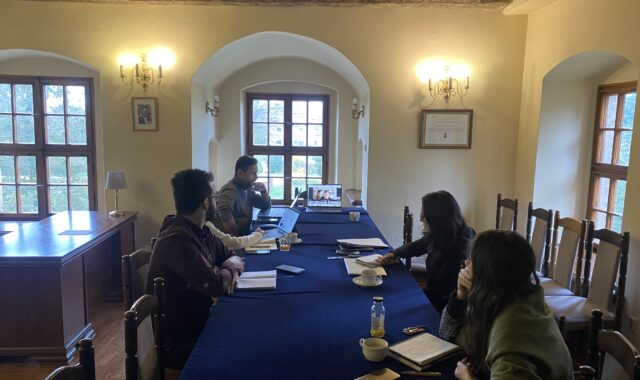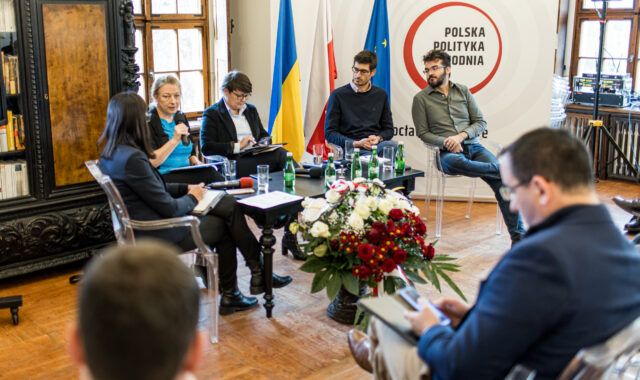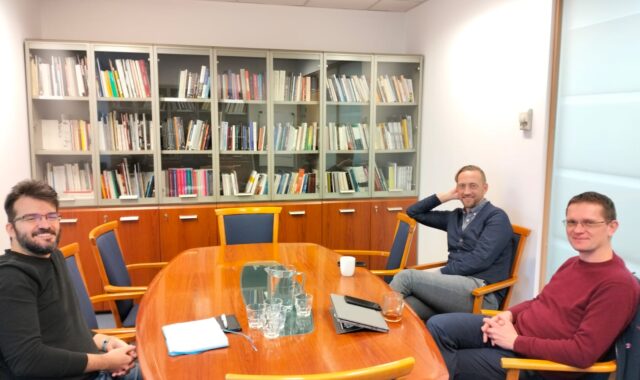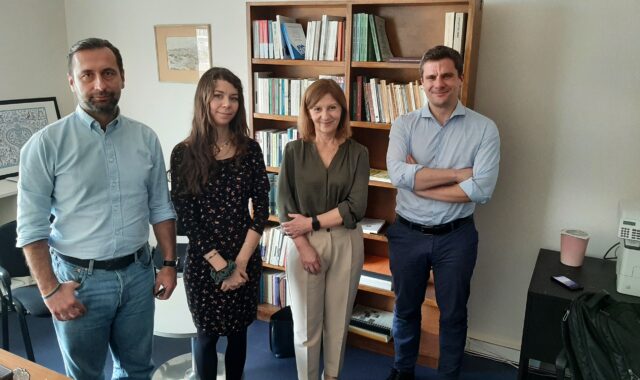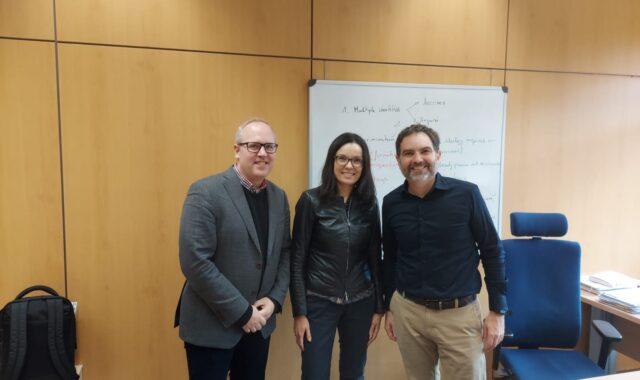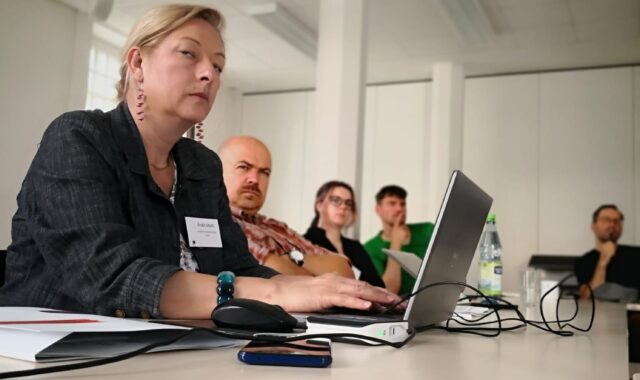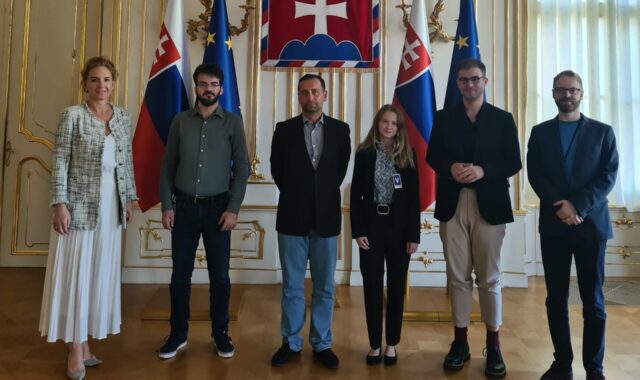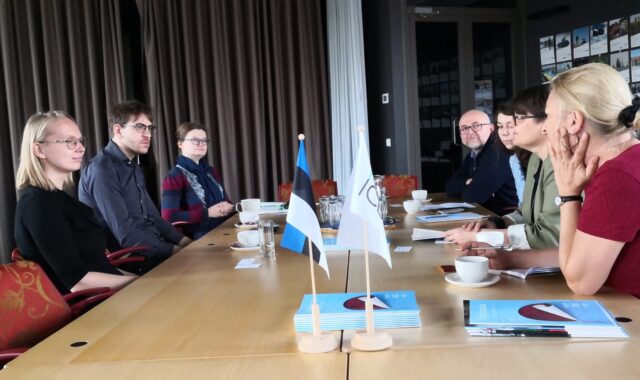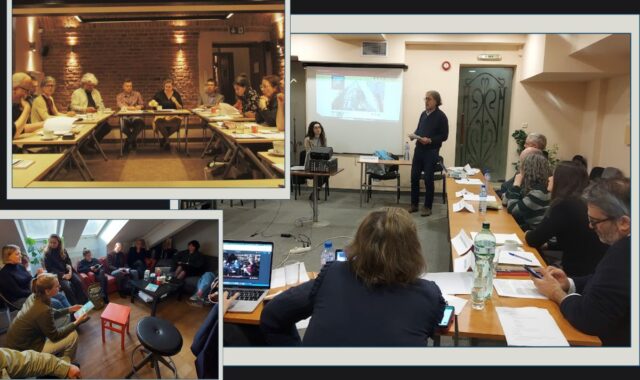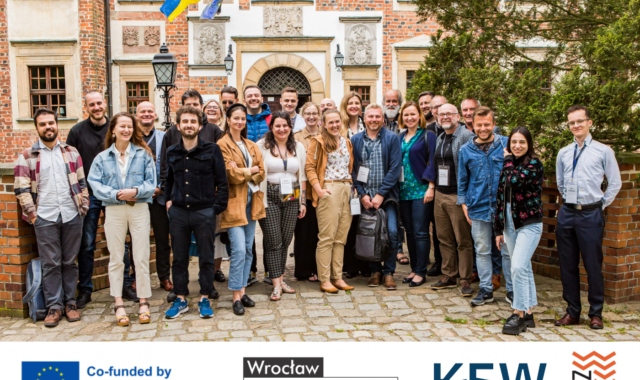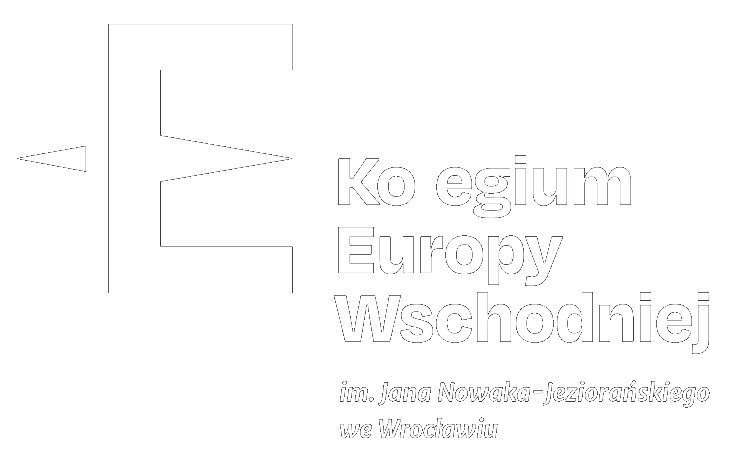Our project “Protecting European Values”. A proactive approach to strengthening and building European democracy by countering hostile threats aimed at diminishing EU values and bridging existing divides is focused on four key objectives:
1. To identify external and internal threats and develop strategies to counter hostile interference aimed at diminishing EU values.
The need for addressing the objective of identifying external and internal threats and developing strategies to counter hostile interference aimed at diminishing EU values arises from the growing threat of authoritarianism, populism and disinformation campaigns in Europe. These threats undermine the rule of law, democratic institutions and European values and can ultimately erode the stability and security of the European Union. In recent years, there have been a growing trend of illiberalism and anti-democratic sentiment within some EU member states while external actors have attempted to interfere in European societies and politics. Russia’s full-scale invasion of Ukraine has dramatically changed the understanding of interference in European democratic processes. These trends pose a significant risk to the future of European democracy, and require proactive measures to address them. By mapping and analysing these threats and developing effective strategies to counter them, we can help to safeguard the future of European democracy and ensure that the EU remains a bastion of freedom, democracy, and human rights. Lastly, the 20-year anniversary of the EU’s 2004 enlargement provides a perfect opportunity to examine the current state of European democracy.
2. To strengthen the European understanding of rights and values by promoting greater cohesiveness across the EU and bridging divides (geographic, social, economic, political, etc.); as well as via awareness raising and information dissemination on the regional and transnational level.
The need for this objective arises from the insistent challenges facing the EU in terms of unity and solidarity. The EU is a diverse and complex political entity, encompassing a wide range of social, economic, and political realities. Despite the common values and principles that bind the EU together, there are often significant differences in perspective and priorities among member states and their citizens. These differences can lead to a sense of division and alienation, which can ultimately undermine the EU’s ability to act collectively and effectively. 2024 will be a year of important election where polarisation will be a significant threat. By promoting greater cohesiveness across the EU, we can help to build a stronger sense of shared identity and purpose, and foster greater understanding and cooperation among member states and their citizens. Additionally, raising awareness and disseminating information on rights and values can help to promote a more informed and engaged citizenry, which is essential for the long term health and vitality of the EU.
3. To facilitate dialogues on key issues (e.g. disinformation, gender inequality, climate change, etc.) facing European societies and, through research, propose solutions contributing to building a more democratic EU.
According to the European Democracy Action Plan, “the past years, have shown that democracy in the EU is facing great challenges ranging from rising extremism, election interference to spread of manipulative information and threats against journalist”. To address these challenges, it is important to facilitate dialogues among stakeholders from across Europe. These dialogues can help to promote a more inclusive and democratic debate about critical issues facing European societies. Through research, these dialogues can also help to propose solutions that contribute to building a more democratic EU. This project objective seeks to address these needs by providing a platform for dialogue and research on key issues facing European societies.
4. To fight disinformation, strengthen EU media literacy, and promote Union values.
The proliferation of disinformation has become a major challenge for European democracies. Disinformation can undermine public trust in democratic institutions and sow division within societies. This has been noted in recent reports by a variety of institutions (OECD, Reporters Without Borders and Civil Liberties Union for Europe). AI gives journalists more power but poses new ethical challenges and responsibilities. What’s more, there still remains an unequal level of treatment of different voices. Hence, this project objective seeks to address these needs by promoting media literacy, Union values, and other tools to fight disinformation and promote inclusion. To address these complex challenges, it is important to strengthen media literacy among European citizens and promote the values that underpin the European Union. By promoting Union values, such as diversity and inclusion, freedom of expression, pluralism and tolerance, we can reinforce the importance of these principles in the face of disinformation and other threats to democratic societies. This project objective seeks to address these needs by promoting media literacy, Union values, and other tools to fight disinformation.
Mapping Threats to European Democracy
The aim of this activity is to study and develop a comprehensive understanding of the threats to European democracy. This activity will establish a Working Group on Threats to European Democracy who will develop a research methodology to undertake this activity. A replicable and innovative methodology for threat analysis will use tools such as public opinion surveys, open-source research, big data and historical research. KEW will conduct the pilot research in selected countries using the methodology developed by the Working Group. The project assumes that in the future the methodology can be used as a template for similar types of research and will be shared after the pilot research phase. The Working Group will also organize a series of roundtable meetings with experts and civil society from all over the European Union which will prepare a special report mapping threats to European democracy with recommendations ahead of the 2024 EU Parliament elections.
This activity will support the primary research agenda of the KEW think tank and include the organization of study visits and analytical exchanges between our project team, affiliated fellows and other European experts. The results of the various meetings and discussions will help develop solutions to EU-wide problems identified in the research agenda by providing a link between KEW research and EU policymaking. This activity will support KEW’s pursuit of mutual learning and exchange of good practices, awareness raising, information and dissemination activities with an EU added value. This includes policy papers, research reports, articles and podcasts but also online social media campaigns aimed not only at the policy community, but the wider European public as a whole.
In 2024, the project will also include a special assessment of European democracy in the framework of the commemoration of 20 years since the 2004 EU Enlargement. This will include a series of Roundtable discussions (Bratislava, Prague, Budapest) to explore the state of democracy in the European Union 20 years after the 2004 enlargement. A final report as a result of the three discussions will be released by the end of the year.



